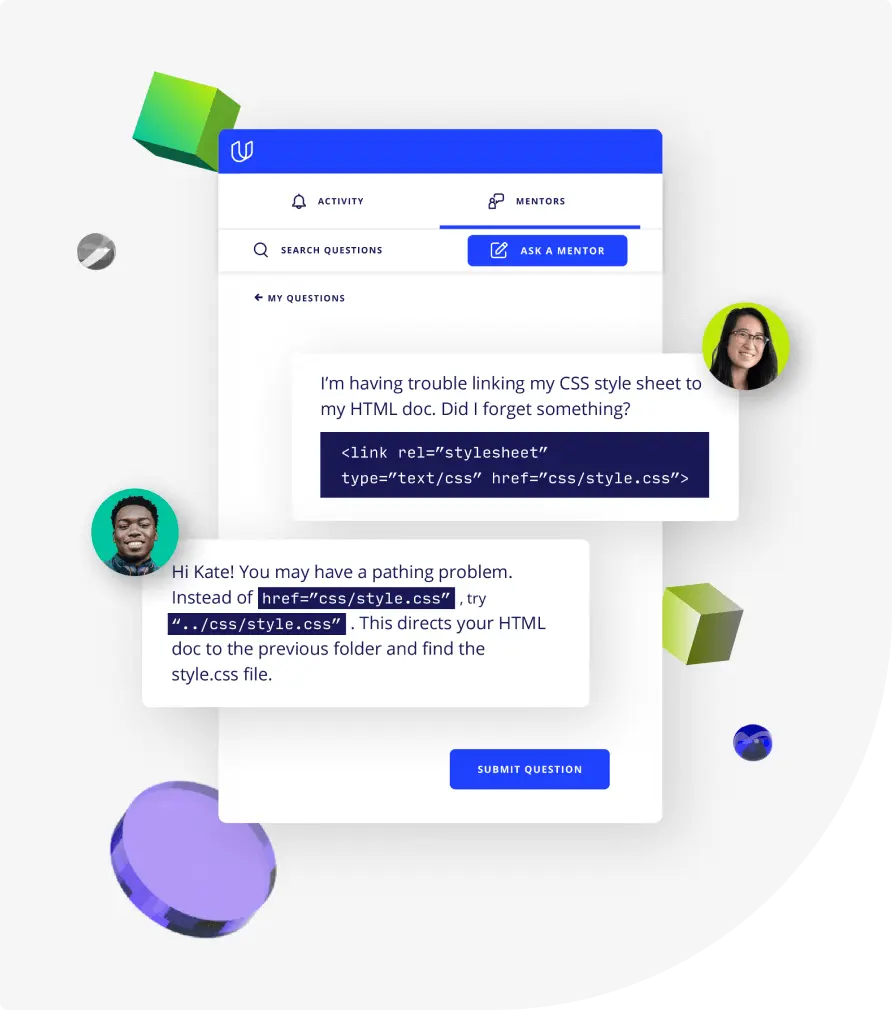Lesson 1
Introduction to Self-Healing Architectures
Welcome to Self-healing Architectures! In this lesson, you'll learn more about the course and the topic.

Course
Self-healing architecture is resilient enough to withstand failure and resolve issues without human intervention through automation. In this course, you'll gain skills in self-healing architecture design strategies, deployment strategies, and cloud automation
Self-healing architecture is resilient enough to withstand failure and resolve issues without human intervention through automation. In this course, you'll gain skills in self-healing architecture design strategies, deployment strategies, and cloud automation
Intermediate
4 weeks
Real-world Projects
Completion Certificate
Last Updated July 19, 2024
Skills you'll learn:
Prerequisites:
No experience required
Lesson 1
Welcome to Self-healing Architectures! In this lesson, you'll learn more about the course and the topic.
Lesson 2
In this lesson, you'll learn about self-healing system design fundamentals like single points of failure, tiered architecture, automation strategies, and microservice design.
Lesson 3
In this lesson, you'll learn about and implement several self-healing deployment strategies
Lesson 4
In this lesson, you'll learn about several different self-healing cloud automation configurations for microservices and virtual machines.
Lesson 5 • Project
In this project, you'll put everything you learned in the course into practice by playing the role of an SRE fixing and deploying applications using self-healing strategies

CTO of Mechanicode.io
Emmanuel is co-founder of the Black Code Collective and DC's Technical.ly RealLIST Engineer award recipient. An AWS Certified DevSecOps specialist with 12 years of experience, he has spent his career developing innovative solutions using DevSecOps & Site reliability best practices.
Combine technology training for employees with industry experts, mentors, and projects, for critical thinking that pushes innovation. Our proven upskilling system goes after success—relentlessly.

Demonstrate proficiency with practical projects
Projects are based on real-world scenarios and challenges, allowing you to apply the skills you learn to practical situations, while giving you real hands-on experience.
Gain proven experience
Retain knowledge longer
Apply new skills immediately

Top-tier services to ensure learner success
Reviewers provide timely and constructive feedback on your project submissions, highlighting areas of improvement and offering practical tips to enhance your work.
Get help from subject matter experts
Learn industry best practices
Gain valuable insights and improve your skills

Unlimited access to our top-rated courses
Real-world projects
Personalized project reviews
Program certificates
Proven career outcomes
Full Catalog Access
One subscription opens up this course and our entire catalog of projects and skills.
Average time to complete a Nanodegree program
3 weeks
, Advanced
4 weeks
, Intermediate
4 weeks
, Intermediate
4 weeks
, Intermediate
4 weeks
, Advanced
3 weeks
, Advanced
(9)
4 months
, Intermediate
4 weeks
, Intermediate
4 weeks
, Intermediate
4 weeks
, Advanced
4 weeks
, Intermediate
4 weeks
, Intermediate
(174)
2 months
, Advanced
4 weeks
, Intermediate
8 hours
, Beginner
4 weeks
, Beginner

Self Healing Architectures
3 weeks
, Advanced
4 weeks
, Intermediate
4 weeks
, Intermediate
4 weeks
, Intermediate
4 weeks
, Advanced
3 weeks
, Advanced
(9)
4 months
, Intermediate
4 weeks
, Intermediate
4 weeks
, Intermediate
4 weeks
, Advanced
4 weeks
, Intermediate
4 weeks
, Intermediate
(174)
2 months
, Advanced
4 weeks
, Intermediate
8 hours
, Beginner
4 weeks
, Beginner